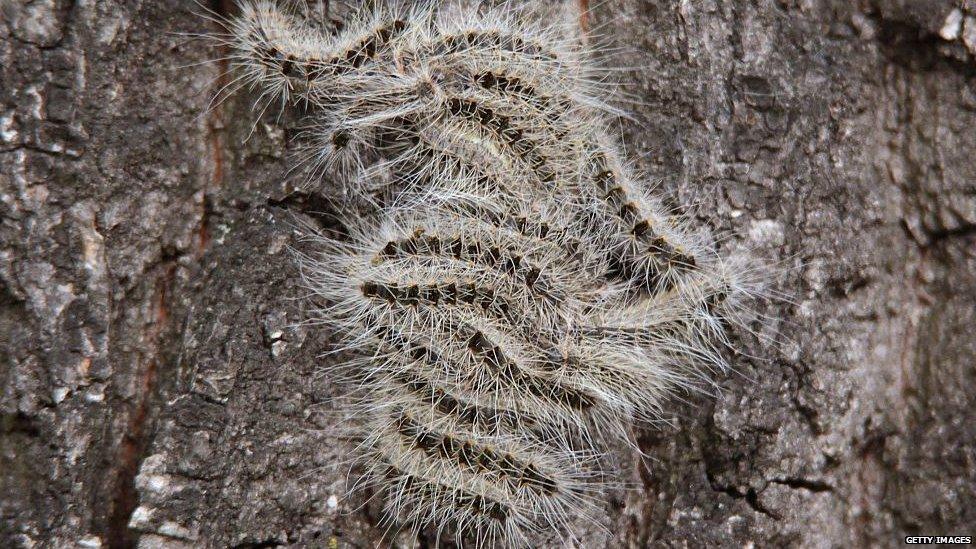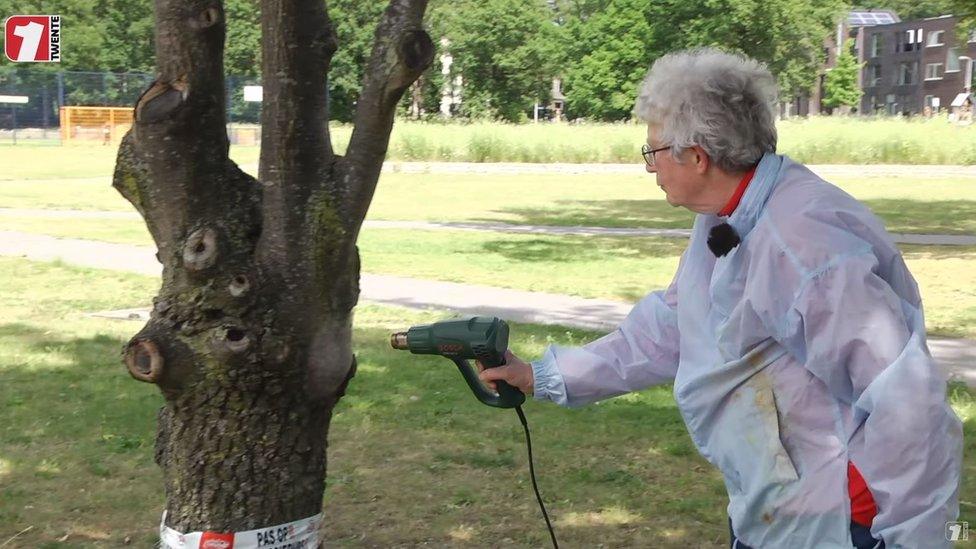Conservationists urge caution over caterpillars
- Published

The hairs on oak processionary caterpillars can trigger skin irritation
Conservationists in the Netherlands have appealed to council pest control experts not to vacuum or poison oak processionary caterpillars that have infested parts of Europe.
Their number has tripled in parts of the Netherlands, compared to last year, reports the NL Times, external. Hundreds of millions of them are estimated to be infesting Dutch trees.
The birds protection organisation Vogelbescherming Nederland, external advocates the use of biological solutions that are more effective and nature-friendly, external than attacking nests with blow torches and big vacuum cleaners.
It wants local councils to plant native species - like honeysuckle and clover - which would attract insects, birds and bats that eat the caterpillars. It says putting up nesting boxes for caterpillar-eating birds such as the great tit, nuthatch and blue tit has also proven effective.
The municipality of Wapenveld said it had reduced the infestation of oak processionary caterpillars by 85% since adopting biological pest control, reports the DutchNews website, external.
Germany, the Netherlands and Belgium are battling many infestations of oak processionary caterpillars, following a milder winter and spring.
You might also like:
The caterpillar is named for its preference of oak trees and the procession-like order in which it climbs to the top of the tree where it feeds on the young leaves.
Each caterpillar has 700,000 toxic bristles which can be carried by the wind. Each tiny hair has a hook that can stick into skin and can cause painful rashes, coughing and allergic reactions.
Six people had to undergo eye operations in the German city of Münster to remove caterpillar hair that got stuck on their corneas, reports Deutsche Welle, external.
'Rotten beasts'
The hairy invaders have caused so much upset among local residents that some people have decided to take extermination matters into their own hands.
One video that went viral showed an elderly woman in the Dutch city of Enschede launching a heat gun attack on the unwanted visitors.
But while she seems pleased to have taken care of the "rotten beasts", local officials have advised residents that such initiatives are "unwise" and best left to the experts.
"If such a nest is attacked by a heat gun, there will be an explosion of hair and you can increase the problem", they warned, external.

Don't mess with processionary caterpillars, officials warn
Reporting by Krassi Twigg
Next story: Uzbek women market traders hit back at criticism
Use #NewsfromElsewhere to stay up-to-date with our reports via Twitter, external.